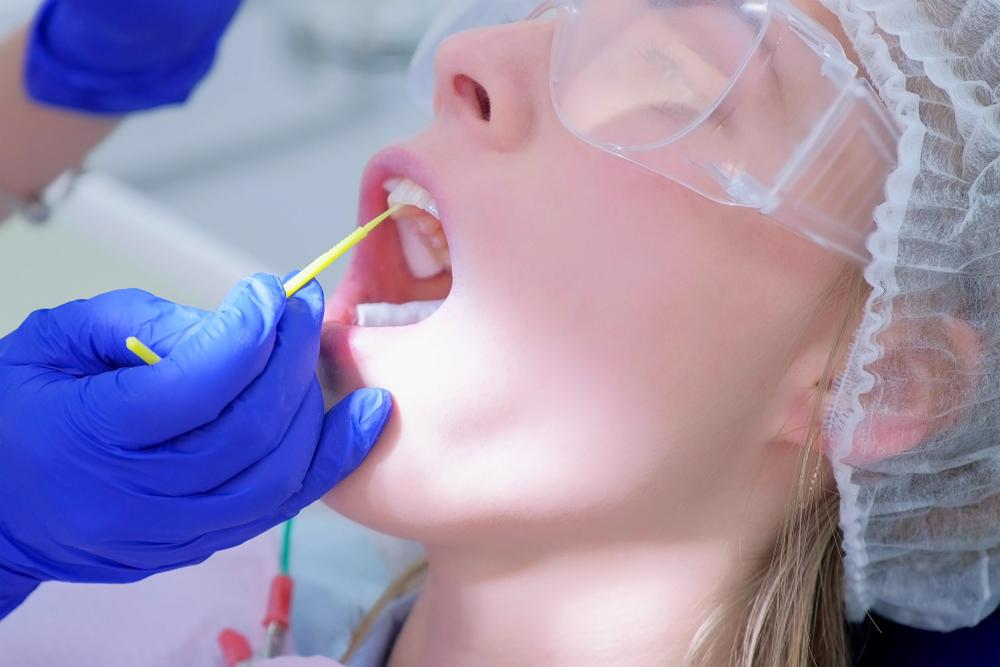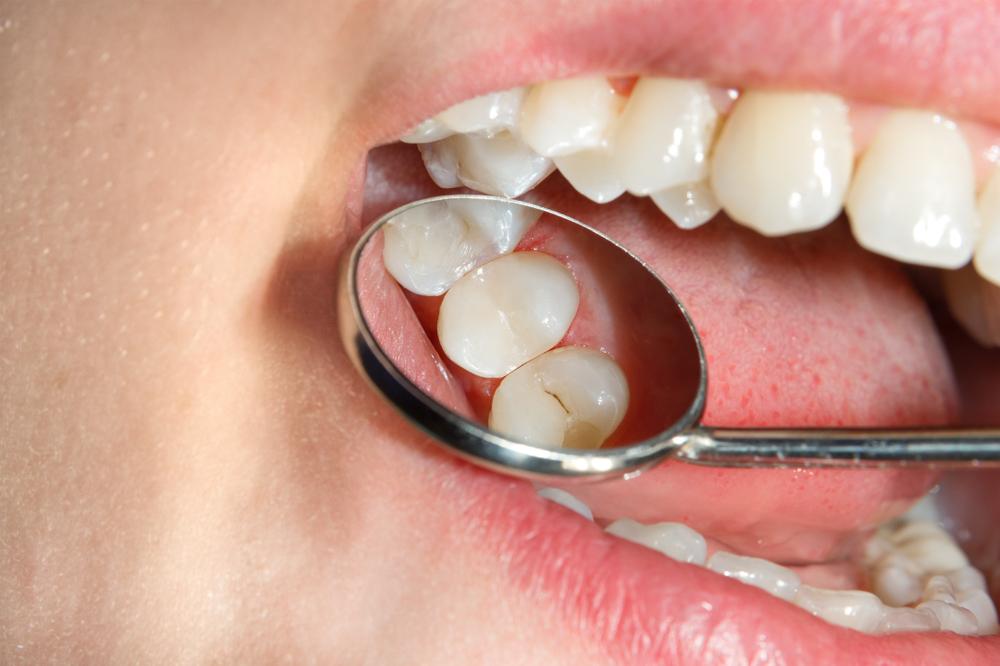Dental Prevention: Checkups, Fluoride, Sealants & Cancer Screening

In a world where our daily lives are often a whirlwind of responsibilities, taking care of our health sometimes takes a backseat. However, when it comes to our oral health, there’s no room for compromise. The foundation of a confident, radiant smile lies in proactive dental care.
The importance of prevention in dentistry cannot be overstated. It’s not just about treating problems after they’ve arisen; it’s about stopping them in their tracks before they even begin. Prevention is your dental armor against a host of potential issues, from tooth decay to oral cancer.
In this comprehensive guide, we’ll embark on a journey to explore the key components of prevention that every responsible dental patient should be aware of. We’ll delve into the world of regular dental checkups, the power of fluoride treatment, the protective shield of dental sealants, and the life-saving practice of oral cancer screening. Each of these elements plays a unique role in safeguarding your oral health, and together, they constitute the essence of proactive dental care.
Let’s embark on this enlightening journey to understand why regular dental checkups, fluoride treatment, dental sealants, and oral cancer screening are the cornerstones of a healthy, beautiful smile. Your proactive journey to optimal oral health begins here.
FAQ’S
Regular Dental Checkups: The Foundation of Oral Health
In the realm of oral health, regular dental checkups at Kokomo Family Dentistry stand as the bedrock, the cornerstone, and the unsung hero. They are the safeguard that prevents minor issues from escalating into major concerns, and they play an integral role in preserving your overall oral well-being.
Importance of Routine Dental Checkups:
Regular dental checkups at Kokomo Family Dentistry are like the compass that keeps your oral health journey on the right path. But why are they so crucial? Firstly, these checkups provide an opportunity for a professional dental expert at Kokomo Family Dentistry to assess the state of your oral health. They can spot issues that might be invisible to the untrained eye and address them before they become problematic.
What to Expect During a Checkup?
During a typical dental checkup at Kokomo Family Dentistry, your dental professional will conduct a thorough examination of your mouth, teeth, and gums. They will inspect for signs of tooth decay, gum disease, or any abnormalities. X-rays may be taken to get an even more in-depth view of your oral health. A professional cleaning, which involves removing plaque and tartar, is also typically part of the process.
How Does It Contribute to Prevention?
The magic of these checkups at Kokomo Family Dentistry is in their preventive nature. By identifying issues at their earliest stages, they can be addressed proactively. It's much easier and cost-effective to prevent dental problems than to treat them after they've progressed. Through regular checkups at Kokomo Family Dentistry, you're taking a proactive stance, actively preventing issues from worsening.
Recommended Frequency for Checkups:
The recommended frequency for dental checkups can vary depending on your individual oral health and specific risk factors. However, as a general guideline, most dental professionals, including Kokomo Family Dentistry, recommend visiting your dentist at least every six months. For some individuals with specific concerns, more frequent visits might be necessary. Your dentist at Kokomo Family Dentistry can provide personalized advice based on your unique needs.
Regular dental checkups at Kokomo Family Dentistry are your secret weapon in the battle for oral health. By visiting Kokomo Family Dentistry, you are not only preserving your smile but also embracing the philosophy of prevention. Next, we'll explore another critical element of prevention: the power of fluoride treatment.
The Power of Fluoride Treatment
When it comes to fortifying the citadel of your teeth against the relentless assault of tooth decay, fluoride stands as a steadfast guardian. Fluoride treatment, especially in the form of fluoride varnish, is a supercharged shield that can make all the difference in your oral health journey.
The Role of Fluoride in Preventing Tooth Decay:
Fluoride is like a trusted ally in the battle against tooth decay. It's a natural mineral found in many water sources, and it's renowned for its ability to strengthen the enamel of your teeth, the protective outer layer. Enamel acts as a barrier between your teeth and the onslaught of bacteria and acids. However, it can become weakened over time due to various factors, including the consumption of acidic or sugary foods.
Fluoride plays a crucial role in this context by remineralizing the enamel, making it more resilient to acid attacks. Essentially, it helps your teeth defend themselves against the corrosive forces of plaque and bacteria, preventing the formation of cavities.
The Process of Fluoride Varnish Application and Its Benefits:
Fluoride varnish is a highly concentrated form of fluoride that is directly applied to your teeth. The application process is quick and painless, making it suitable for patients of all ages, including children.
During the application, your dentist or dental hygienist will paint a thin layer of fluoride varnish onto the surfaces of your teeth. The varnish adheres to the enamel and releases fluoride ions, which penetrate the tooth's surface and promote remineralization.
The benefits of fluoride varnish are manifold. Besides its cavity-fighting abilities, it can also help with tooth sensitivity and enhance the overall strength of your teeth. The protection it provides continues for several months, making it an effective and long-lasting preventive measure.
Common Misconceptions About Fluoride:
Despite the well-documented benefits of fluoride, there are some common misconceptions surrounding it. One of the most prevalent myths is that fluoride is harmful or toxic in the quantities used in dental treatments. This is not the case; fluoride treatments are safe when used as directed by dental professionals.
Another misconception is that fluoride is unnecessary if one maintains good oral hygiene. While oral hygiene is vital, fluoride acts as an extra layer of protection, reinforcing your efforts in maintaining a healthy smile.
In our journey through the realm of prevention, fluoride treatment is a formidable weapon against tooth decay. The next shield we'll explore is dental sealants, which offer another layer of defense for your teeth.
Dental Sealants: Shielding Your Teeth
In the ongoing battle for oral health, there is a silent hero that often goes unnoticed but plays a pivotal role in safeguarding your pearly whites – dental sealants. These unassuming coatings are a remarkable preventive measure that provides an extra layer of defense against the forces of tooth decay.
Introducing Dental Sealants as an Effective Preventive Measure:
Dental sealants are like a protective force field for your molars and premolars, the teeth at the back of your mouth that are primarily responsible for chewing and grinding food. These are the areas most susceptible to the accumulation of food particles and bacteria. Dental sealants are designed to seal off the vulnerable nooks and crannies on the chewing surfaces of these teeth.
The primary goal of dental sealants is to prevent the formation of cavities by creating a barrier that keeps harmful substances away from your tooth enamel. They are a proactive, preemptive measure to fortify your teeth against the corrosive action of acids and bacteria.
The Sealant Application Process and Its Protective Benefits:
The application of dental sealants is a straightforward, painless process that is typically performed in a dental office. It involves the following steps:
1. Cleaning: The teeth that will receive sealants are thoroughly cleaned to remove any plaque or debris.
2. Conditioning: A conditioning solution is applied to the chewing surfaces to create a surface which helps the sealant adhere effectively.
3. Sealant Application: The sealant material is applied to the prepared tooth surfaces. It then bonds to the enamel, forming a thin, protective layer.
4. Curing: A special light is used to harden and set the sealant.
The benefits of dental sealants are twofold. First and foremost, they create a physical barrier that prevents food particles, acids, and bacteria from settling into the grooves of your teeth. This barrier makes it significantly more challenging for cavities to develop. Second, dental sealants are a cost-effective and non-invasive way to protect your teeth, especially for children and teenagers.
Who Can Benefit from Dental Sealants?
Dental sealants are highly beneficial for individuals of all ages, but they are particularly advantageous for children and teenagers. The application of sealants is typically recommended as soon as the permanent molars and premolars emerge, which usually occurs around the ages of 6 and 12.
However, adults can also benefit from sealants, especially if they have a history of dental cavities or possess deep grooves in their molars. Sealants provide an additional layer of protection that can help maintain oral health.
Dental sealants, our protective shield, are an essential component of the prevention toolkit. Next, we'll explore the practice of oral cancer screening and its life-saving potential.
Oral Cancer Screening: Early Detection Saves Lives
In the vast landscape of oral health, one aspect often overshadowed by discussions of cavities and gum disease is the critical practice of oral cancer screening. The truth is that when it comes to oral cancer, early detection can make all the difference, even save lives.
The Importance of Regular Oral Cancer Screenings:
Regular oral cancer screenings are a potent weapon in the fight against a potentially devastating disease. The significance of these screenings cannot be emphasized enough, especially considering that oral cancer has a higher mortality rate than other more widely discussed cancers.
The essential factor here is that oral cancer, when detected early, is highly treatable. The key to early detection lies in regular screenings, which can identify abnormal changes in the mouth before they progress to more advanced stages.
What These Screenings Entail and Their Role in Early Detection?
Oral cancer screenings are typically performed during your routine dental checkups, making them a seamless part of your preventive dental care. During the screening, your dentist or dental hygienist will inspect your mouth, tongue, throat, and other oral tissues for any signs of abnormality.
The process is painless and quick, involving a visual examination and sometimes manual palpation to feel for lumps or irregularities. If any suspicious lesions or areas are identified, further diagnostic tests or a biopsy may be recommended for a definitive diagnosis.
The role of these screenings is clear: they are the sentinels on the lookout for early signs of oral cancer. By detecting abnormalities before they become symptomatic or reach advanced stages, oral cancer screenings offer the opportunity for prompt intervention and improved treatment outcomes.
Key Risk Factors for Oral Cancer:
Understanding the risk factors for oral cancer is a fundamental aspect of prevention. Some of the key risk factors include:
1. Tobacco Use: Smoking and smokeless tobacco significantly increase the risk of oral cancer.
2. Heavy Alcohol Consumption: Excessive alcohol consumption, especially when combined with tobacco use, raises the risk.
3. Human Papillomavirus (HPV): Certain strains of HPV are associated with oral cancer.
4. Sun Exposure: Prolonged sun exposure to the lips without protection can contribute to lip cancer.
5. Age and Gender: The risk of oral cancer increases with age, and men are more likely to develop it than women.
6. Poor Diet: A diet lacking in fruits and vegetables may increase the risk.
Therefore, oral cancer screening is a pivotal element of your preventive dental care, and its significance should not be underestimated. By highlighting its importance, explaining its process, and sharing the key risk factors, we aim to raise awareness of the life-saving potential of these screenings.
The Connection: How All Prevention Measures Work Together
In our exploration of the components of prevention – regular checkups, fluoride treatment, dental sealants, and oral cancer screening – we find a beautiful symphony of protection, a web of defenses that collectively guard your oral health and prevent potential issues. Let's connect the dots and see how these measures form an unbreakable barrier against the forces that threaten your smile.
The Synergy of Prevention Measures:
Each of these prevention measures plays a unique role in preserving your oral health. Regular dental checkups act as the first line of defense, providing the foundation for early detection and intervention. They are the gatekeepers, ensuring that potential issues are identified before they can gain a foothold.
Fluoride treatment, with its power to remineralize enamel and bolster tooth resistance, is like the armor for your teeth. It strengthens and protects, reducing the risk of decay.
Dental sealants create a physical barrier, safeguarding the nooks and crannies where cavities often take root. They act as the guardians that prevent harmful substances from infiltrating your enamel.
Oral cancer screenings are the early warning system. They are the vigilant sentinels, poised to identify any signs of trouble before they can escalate into something more serious.
Collective Contribution to Oral Health:
The beauty of these prevention measures is in their collaboration. Together, they form a comprehensive strategy that leaves no room for complacency. They work in harmony, each measure supporting the others, to ensure that your oral health is in the best possible condition.
This collective effort is more than just the sum of its parts. It's a holistic approach to oral health that covers a broad spectrum of potential issues. By addressing problems at their earliest stages, these measures save you from the discomfort, expense, and stress that can accompany advanced dental problems.
Conclusion:
As we conclude our journey through the realm of prevention in dentistry, it's essential to reflect on the key takeaways and reinforce the importance of these proactive measures. Prevention is not just a concept; it's a powerful, life-enhancing practice that can ensure a lifetime of healthy, radiant smiles.
Embracing these preventive measures is not just a choice; it's a commitment to your well-being. By prioritizing regular dental checkups, fluoride treatment, dental sealants, and oral cancer screening, you're taking a proactive stance in preserving your oral health.
It's a simple truth that an ounce of prevention is worth a pound of cure, and this applies resoundingly to your oral health. By implementing a comprehensive prevention strategy, you're not only safeguarding your teeth and gums but also enhancing your quality of life.
Our family at Kokomo Family Dentistry encourages you to make prevention a part of your lifestyle. Regular dental checkups, fluoride treatment, dental sealants, and oral cancer screenings are not just tools; they are your allies in the quest for a healthy, beautiful smile. Your proactive journey to optimal oral health begins now, and these measures are the compass that will keep you on the path to a lifetime of smiles.
Frequently Answered Questions
1. How often should I have a dental checkup?
Regular dental checkups are recommended every six months for most individuals. However, your dentist may suggest a different frequency based on your unique oral health needs.
2. Is fluoride treatment only for children?
No, fluoride treatment is beneficial for individuals of all ages. It can strengthen tooth enamel, reduce the risk of decay, and enhance oral health, making it a valuable preventive measure for both children and adults.
3. Are dental sealants necessary for adults or just children?
While dental sealants are often applied to children's teeth, adults can also benefit from them, especially if they have deep grooves or fissures in their molars. Sealants provide an additional layer of protection against cavities.
4. What should I expect during an oral cancer screening?
An oral cancer screening is a quick and painless procedure typically performed during a dental checkup. Your dentist will visually examine your mouth, tongue, throat, and oral tissues for any abnormalities or signs of oral cancer. If something suspicious is found, further tests may be recommended.
5. Are there any side effects or risks associated with these preventive measures?
The preventive measures discussed, including regular dental checkups, fluoride treatment, dental sealants, and oral cancer screenings, are generally safe and low-risk. Any potential side effects or risks are minimal compared to the benefits they offer in maintaining your oral health. Your dentist can provide more information based on your specific situation.





Let’s Get Started
Call Us:
Office Hours :
Mon-Fri: 8:00am-5:00pm
Email Us :
appointments@kokomodentistry.com
Address :
604 East Boulevard, Suite A, Kokomo, IN 46902









